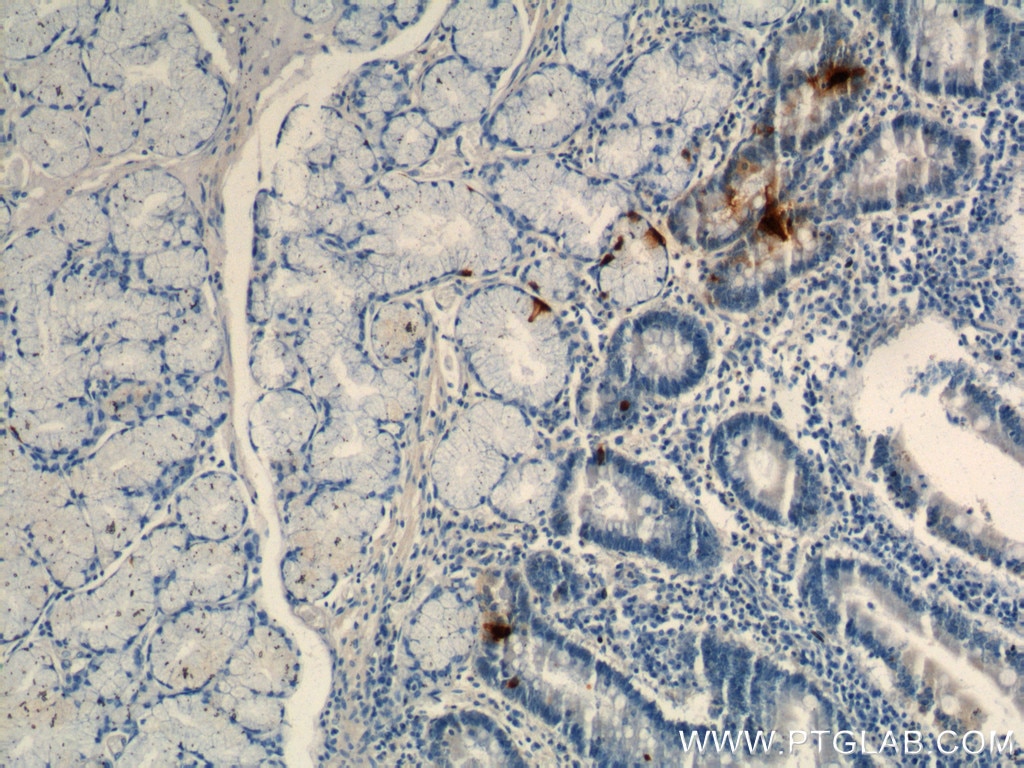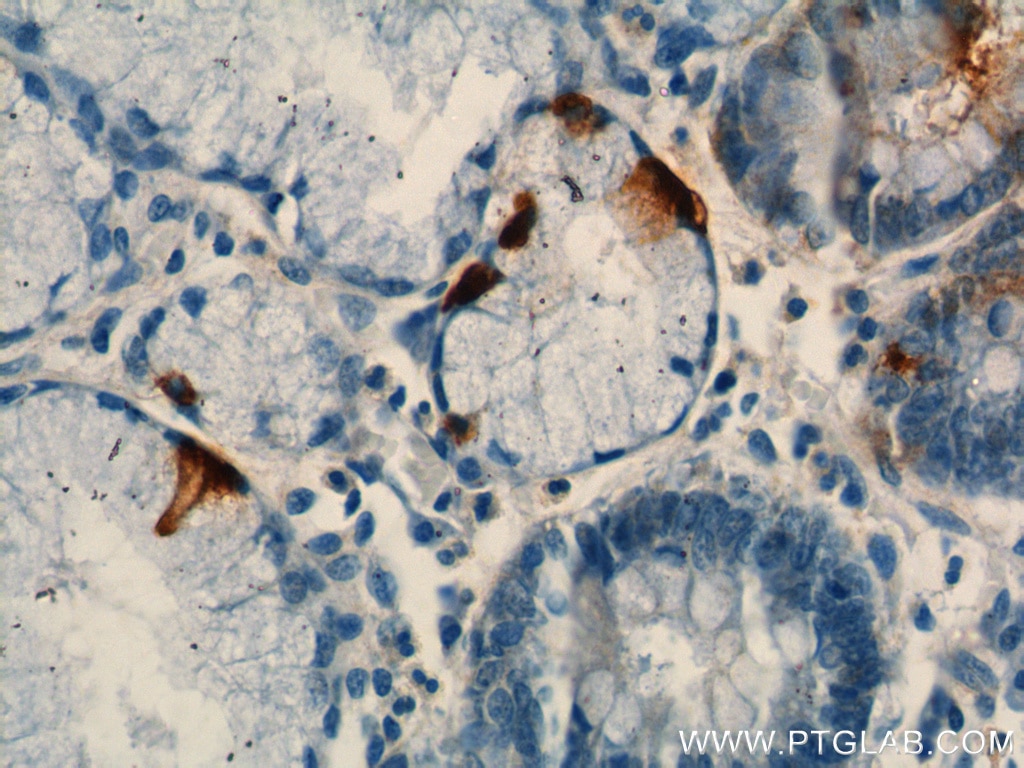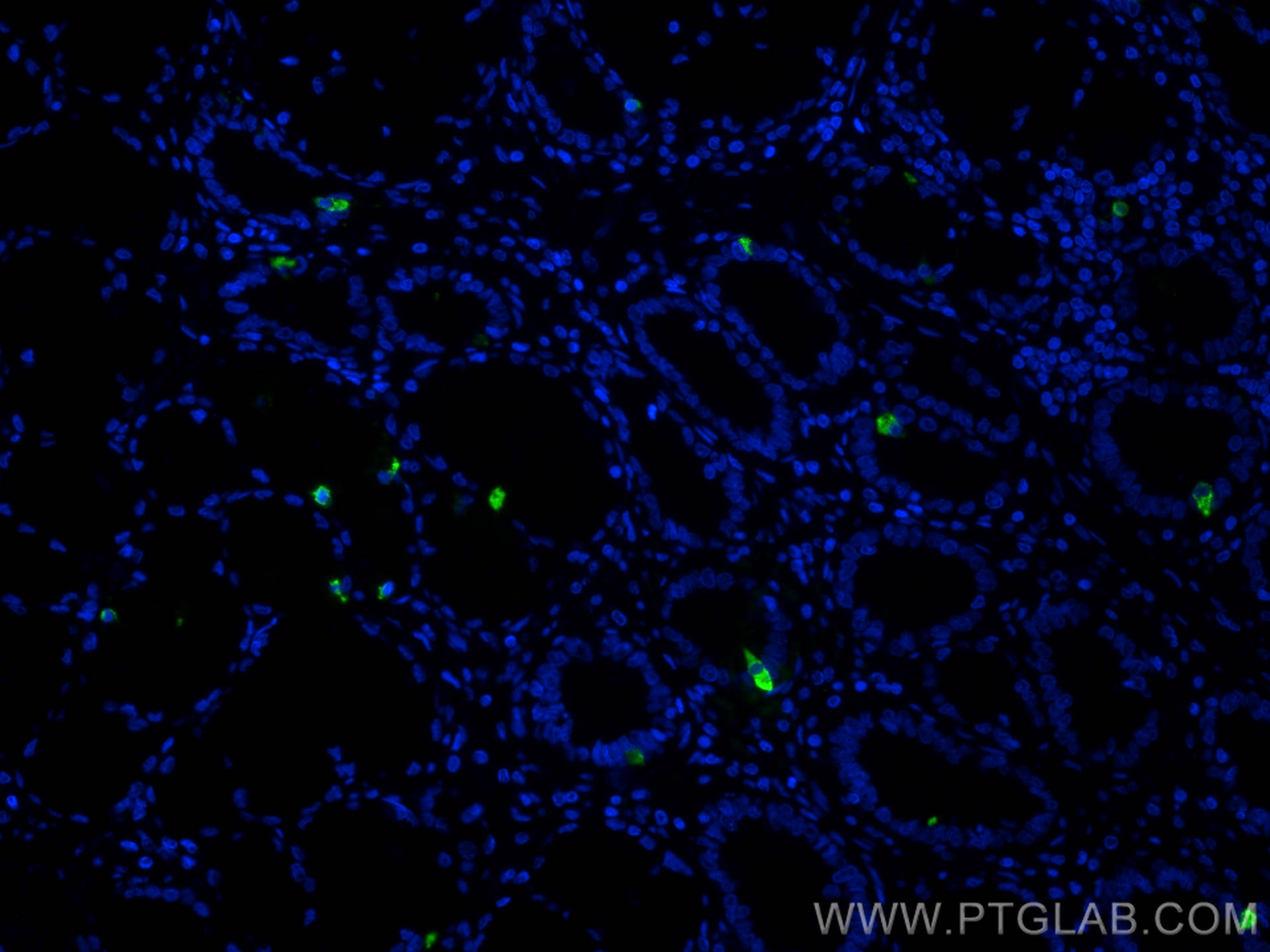Tested Applications
| Positive IHC detected in | human stomach tissue Note: suggested antigen retrieval with TE buffer pH 9.0; (*) Alternatively, antigen retrieval may be performed with citrate buffer pH 6.0 |
| Positive IF-P detected in | human stomach cancer tissue |
Recommended dilution
| Application | Dilution |
|---|---|
| Immunohistochemistry (IHC) | IHC : 1:100-1:500 |
| Immunofluorescence (IF)-P | IF-P : 1:200-1:800 |
| It is recommended that this reagent should be titrated in each testing system to obtain optimal results. | |
| Sample-dependent, Check data in validation data gallery. | |
Published Applications
| IHC | See 1 publications below |
| IF | See 1 publications below |
Product Information
60346-1-Ig targets Gastrin in IHC, IF-P, ELISA applications and shows reactivity with human samples.
| Tested Reactivity | human |
| Cited Reactivity | human |
| Host / Isotype | Mouse / IgG2a |
| Class | Monoclonal |
| Type | Antibody |
| Immunogen |
CatNo: Ag12795 Product name: Recombinant human GAST protein Source: e coli.-derived, PGEX-4T Tag: GST Domain: 19-101 aa of BC069724 Sequence: SEASWKPRSQQPDAPLGTGANRDLELPWLEQQGPASHHRRQLGPQGPPHLVADPSKKQGPWLEEEEEAYGWMDFGRRSAEDEN Predict reactive species |
| Full Name | gastrin |
| Calculated Molecular Weight | 101 aa, 11 kDa |
| GenBank Accession Number | BC069724 |
| Gene Symbol | Gastrin |
| Gene ID (NCBI) | 2520 |
| RRID | AB_2881455 |
| Conjugate | Unconjugated |
| Form | Liquid |
| Purification Method | Protein A purification |
| UNIPROT ID | P01350 |
| Storage Buffer | PBS with 0.02% sodium azide and 50% glycerol, pH 7.3. |
| Storage Conditions | Store at -20°C. Stable for one year after shipment. Aliquoting is unnecessary for -20oC storage. 20ul sizes contain 0.1% BSA. |
Background Information
Gastrin is a hormone produced primarily by G-cells in the stomach, where it functions to stimulate acid secretion by gastric parietal cells. Gastrin is a promiscuous hormone. Thus, the gastrin gene is expressed in common cancers such as bronchogenic, colorectal, ovarian and pancreatic carcinomas.
Protocols
| Product Specific Protocols | |
|---|---|
| IF protocol for Gastrin antibody 60346-1-Ig | Download protocol |
| IHC protocol for Gastrin antibody 60346-1-Ig | Download protocol |
| Standard Protocols | |
|---|---|
| Click here to view our Standard Protocols |
Publications
| Species | Application | Title |
|---|---|---|
Virchows Arch Mixed adenoma-neuroendocrine tumor of the stomach: analysis of nine cases with literature review |








